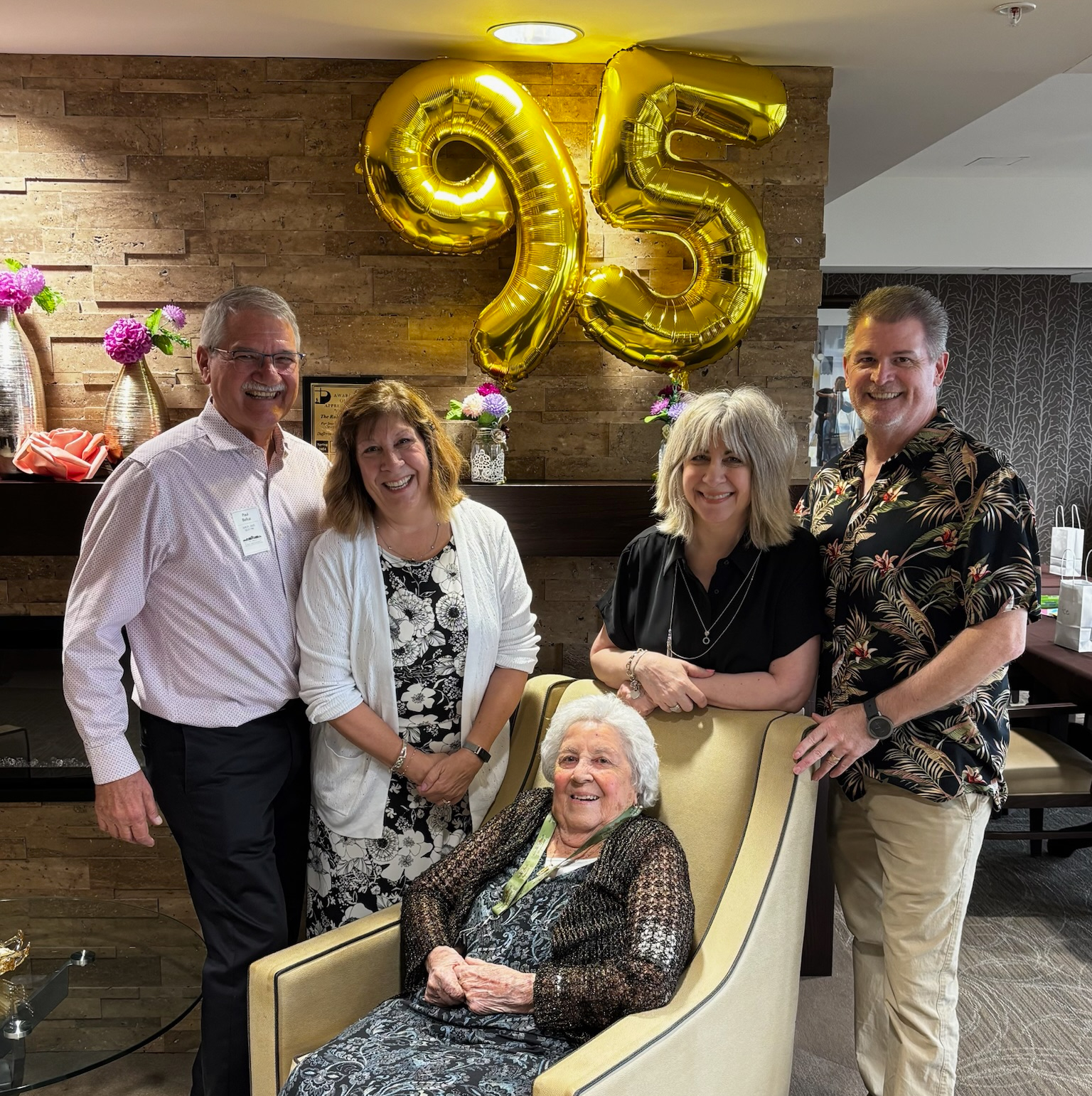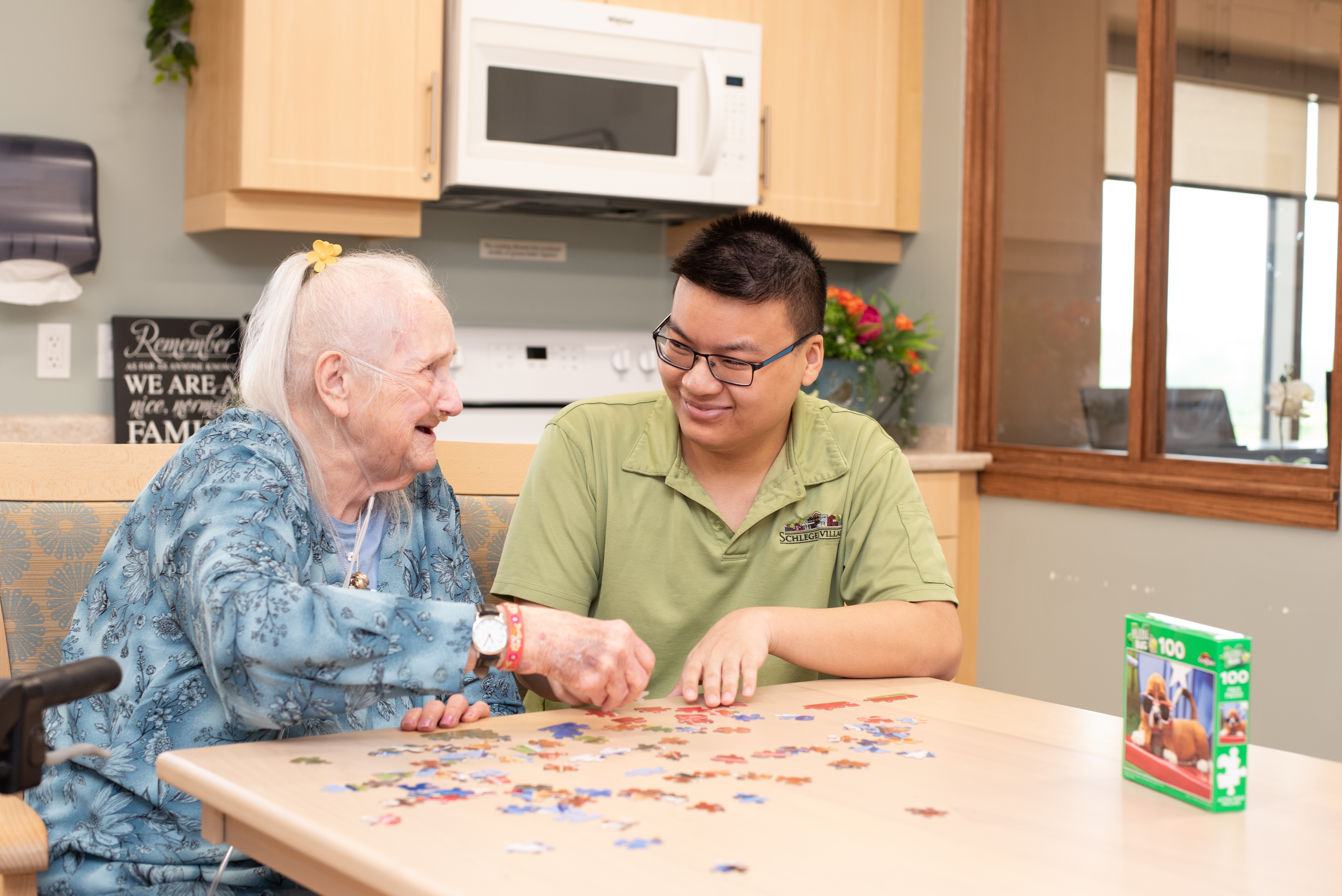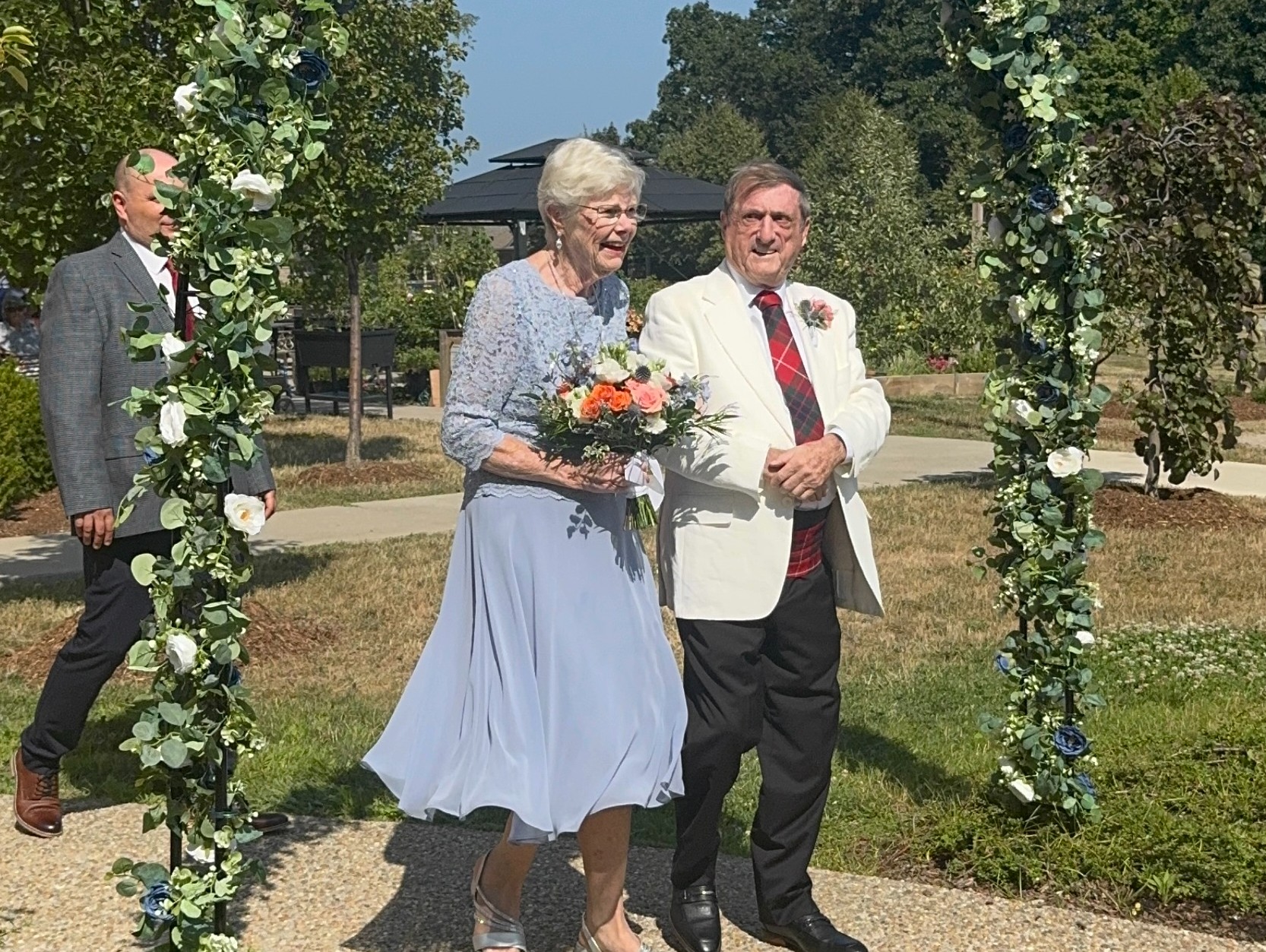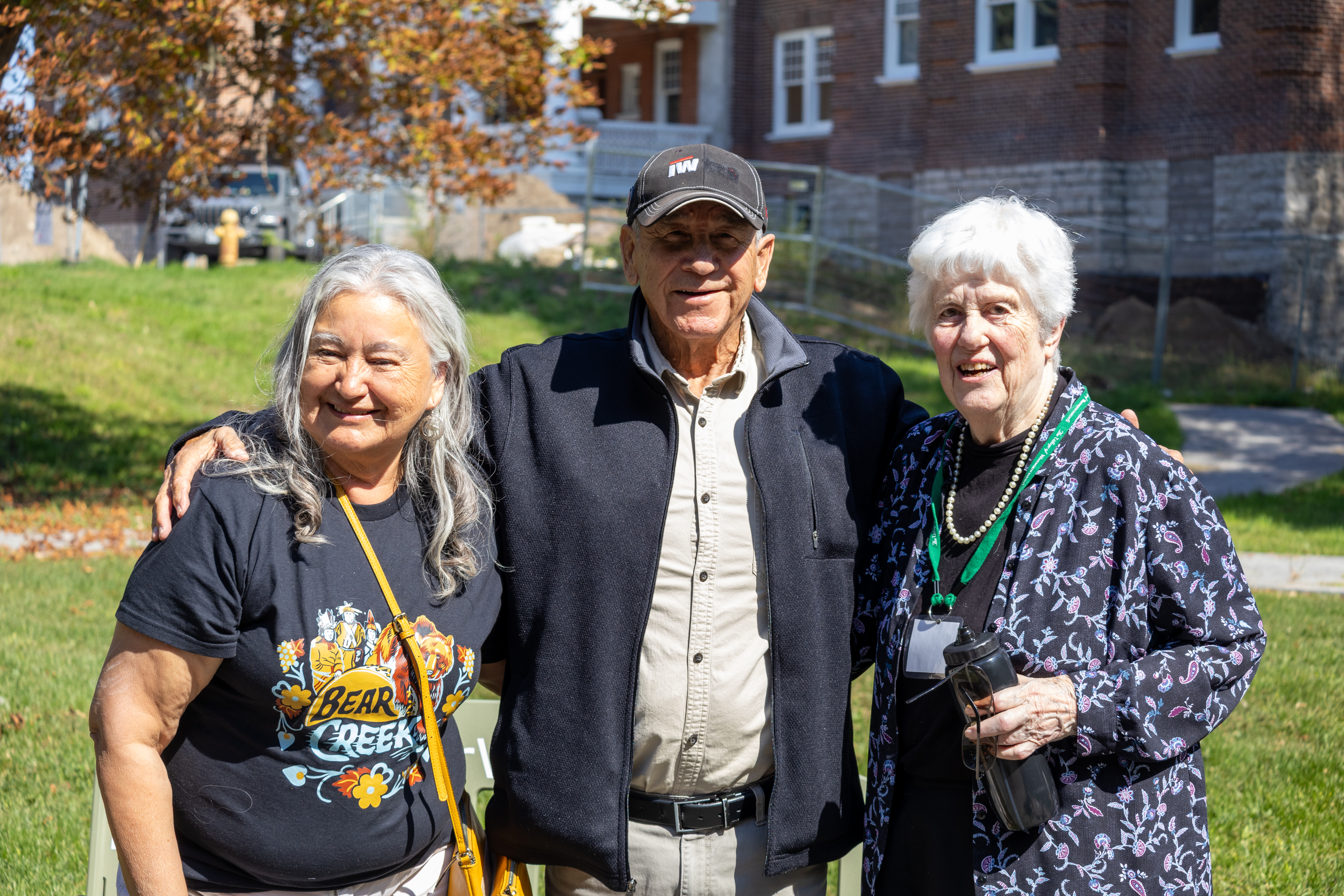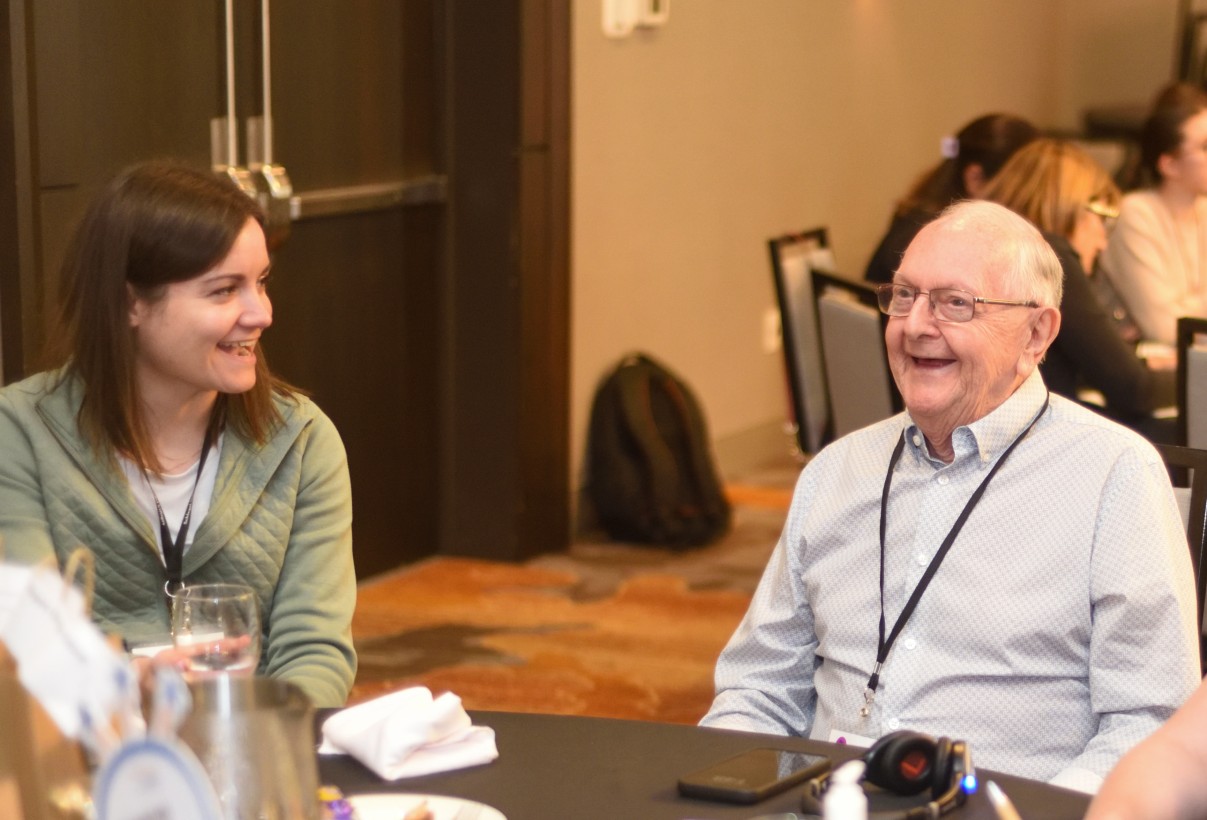Facing adversity with stoicism and humility: Peter Doyle
I first met Peter Doyle earlier this year when a crew of volunteers from several Schlegel Villages converged on the Shady Pines campground, which the organization had recently bought with intentions of creating an accessible camping space for people of all ages and abilities.

Peter(left) with friends from Riverside Glen
at Shady Pines Campground
This was a camp spring clean up day, and Peter arrived with a few fellow residents and team members from The Village of Riverside Glen. We spoke for only a short time while taking breaks away from hauling brush and gathering trash that had accumulated over the course of a long winter in Ailsa Craig. We talked of our collective love of the outdoors and that love being one of the reasons I chose to resettle in my hometown east of Peterborough to raise my family. I love being in a rural setting, with woods and lakes nearby, I told him, and he agreed.
To be honest, there’s no way I would ever have guessed that Peter is living in the early stages of a dementia diagnosis. I was even a little surprised when Riverside Glen’s general manager Bryce McBain and Doug Wigood, the neighbourhood coordinator who supports Peter on Emma’s neighbourhood, told me I have to meet Peter. He’s an inspiration, they told me, and I needed to speak with him to see what is possible when someone faces the challenges life offers with stoicism and humility. The fact that Peter inspires wasn’t the surprising point; I just never would have thought “dementia” when I thought of Peter, but then again I should know there is no cut-and-dried, one-size-fits-all sign of dementia that every person with a diagnosis displays. Everyone is unique and every person lives that journey in his or her own way; a lack of pre-conceived notions is perhaps what helps me connect with the people I meet who, like Peter, are navigating the waters of altered cognition.
I sat with Peter again in mid-June and within seconds of shaking his hand, he recalled virtually all of our conversation two months before, though he made the regrettable faux pas of suggesting I lived in Havelock, the next town east of mine where the rivalries of my youth still linger.
We spoke frankly about the recent transitions he’s faced, going from an independent lifestyle two years ago when he was still on the supply-teaching list to life in Emma’s neighbourhood, which supports people who live with the varying degrees of complexity dementia can present.
It wasn’t easy, at first, Peter admits, but he’s persevered and is thankful that Doug and the team recognize his strengths and use them to enhance village life. He works alongside the team in the servery, for example, helping others at mealtimes – he’s often one of the people who helps train new team members in hospitality. Recently, he ventured into a neighbouring public school, teaching once again in a gymnasium where young pupils chased an indoor soccer ball around.
“I really wish I would’ve kept teaching full time,” Peter admits, reflecting on that recent visit to Paisley Road Public School, “but you know, things happened. It’s been a little strange, this adjustment to being retired,” but it hasn’t slowed him. He’s taken the changes in stride and is now one of the key peer supporters many of his fellow neighbourhood residents look to.
As we close our conversation, which has floated from daily village life to skiing at Mt. Tremblant to how many beers are necessary to pack when planning a weekend at the cottage, I ask if Peter has any advice for others facing the prospect of a move into retirement or long-term care living.
Remember your strengths, he says, “and don’t be afraid to volunteer to do this or volunteer to do that – it’s all good news.”
“It humbles you,” he says of making the move and living with the prospect of changing cognition, “and teaches humility. You just have to try to think positive.”
- Previous
- View All News
- Next
